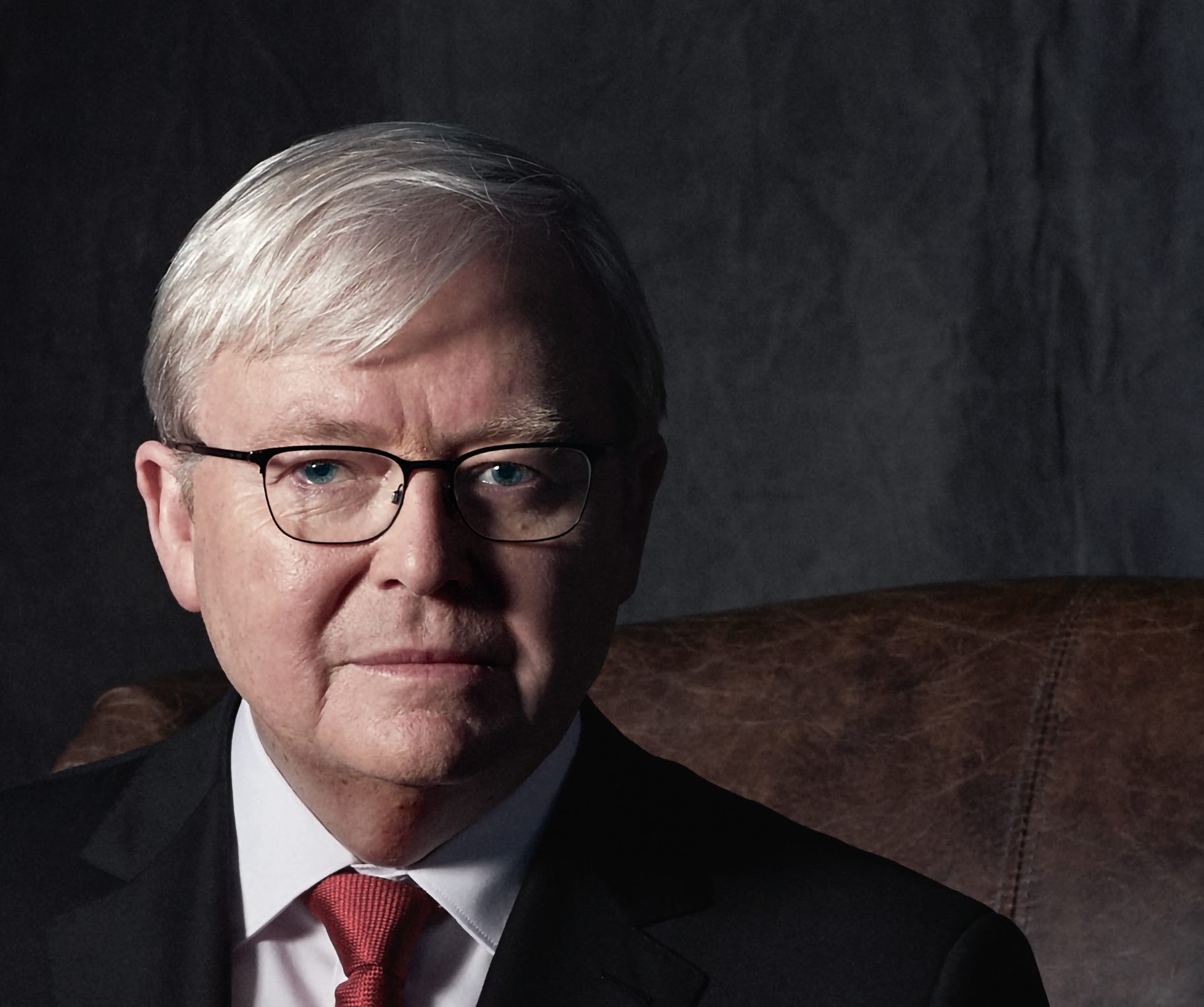More than eight years after he was dumped as Prime Minister, Kevin Rudd is still giving no quarter to rivals and colleagues.
At the recent Melbourne launch of his memoir The PM Years, Mr Rudd took repeated aim at his successors Julia Gillard and Tony Abbott, Liberal minister Peter Dutton, the Murdoch media empire and the so-called “cult of opinion poll”.
In his opening 30-minute speech, Mr Rudd spoke of what he views as the most important challenges facing Australia and the “collective West”, including the role technology and the “balkanisation of news” in the rise of authoritarianism in the Trump era. He then focused on how those global trends are affecting Australia and the stability of our political leadership.
He derided the “apparatchik generation” within the Labor and Liberal parties, with members taught the only way to succeed in politics is to “knock off [whoever] is ahead of you”.
Stating that this new class of politician, who used to be minorities in both parties now dominate the contemporary senior politics of Australia. Quipping that this breed of factional power brokers which he refers to as “the cancer of the Labor Party” have had their tactics adopted and perfected by the Liberal Party which has shown in the fall of Abbott and Turnbull.
Taking aim at the media, in particularly the Murdoch press, Rudd was quick to blame the coverage he received during his Prime Ministership as the deciding factor in his political downfall.
data-lang=”en”>
One thing on the Murdoch Media thugs is their subtlety. In past wk alone, my recent musings (PM Yrs) have been attacked by Bolt, Latham, Devine, Kenny, Cater, Blair & the Courier Fail. I’m sure it has nothing to do with my call for #MurdochRoyalCommission. https://t.co/zal43Z3ZFP pic.twitter.com/Urpj7VnBXh
— Kevin Rudd (@MrKRudd) October 29, 2018
Rudd also asserted the Murdoch media had caused the Brexit outcome through their coverage on Sky News and The Sun in the UK. The same forces, weaponised through Fox News, helped elect Donald Trump in the United States. .
Finishing these remarks with hopes there would be a Royal Commission into media ownership in the future.
Beginning his discussion with ABC broadcaster Patricia Karvelas, Rudd was questioned if he would have been ‘knocked off’ if he were PM of New Zealand.
“There is no big Murdoch footprint in New Zealand and there’s no big footprint in Canada,” he said. “In Canadian politics, what we’ve just been discussing about the impact of one publisher on the democracy, is not a factor”.
When asked why he had waited so long to write a tell-all about his time in politics, Rudd accredited it to his ambition to become Secretary General for the UN. However, these hopes were dashed by interventions by Scott Morrison and Peter Dutton, referred to by Rudd as ‘Mr. Potato Head’, telling Malcolm Turnbull they would split the party if a move to endorse Rudd was taken. “That’s the reason,” quipped Rudd before smiling at the audience.
data-lang=”en”>
G’day. My name’s Kevin, I’m from Queensland, and I’m still here to help…sign a hell of a lot of books. KRudd pic.twitter.com/WgJDzk3UoN
— Kevin Rudd (@MrKRudd) October 31, 2018
In a jibe at Gillard, Rudd spoke of the mental trauma put on him and his family during the coup where he believed he was being painted by Gillard as “losing his mind” or “going mad”. He said those comments were unbecoming of someone who is now the head of Beyond Blue, a role Gillard took up in 2017.
Karvelas praised Rudd for his apology to the Stolen Generation, and Rudd admitted he was still drafting the speech four minutes before delivering it. He also stated he knew the importance of it to indigenous Australians but was avoiding it being compared to Paul Keating’s Redfern Address and the Mabo verdict which took place during Keating’s leadership.
On his successes in office, Rudd spoke about his introduction of rules around leadership spills in the Labor party, which he believes has stopped the party tearing itself apart. If a leader is to be challenged, it can’t be done without a 70% vote of the entire Labor caucus.
Mr Rudd however refused to take responsibility for the crisis on Nauru and Manus Island which began under his government. Stating he did not see the offshore detention of asylum seekers as a permanent solution. He says conservative governments following his have used it as an excuse for inaction.
As for Labor under Shorten? “If they succeed in the next election, and I have some confidence that they will, in forming the next government of Australia, it rebirths the idea of a big policy agenda.”
In closing, Rudd said he hoped those who wished to debate and discuss the major issues affecting the nation, including climate change and public policy, could do so without being criticised as “a bunch of intellectual wankers”.


